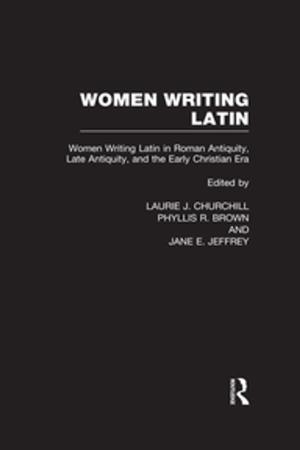Death, Gender and Ethnicity
Nonfiction, Health & Well Being, Medical, Patient Care, Health Care Delivery, Social & Cultural Studies, Social Science, Sociology| Author: | ISBN: | 9781134756599 | |
| Publisher: | Taylor and Francis | Publication: | January 4, 2002 |
| Imprint: | Routledge | Language: | English |
| Author: | |
| ISBN: | 9781134756599 |
| Publisher: | Taylor and Francis |
| Publication: | January 4, 2002 |
| Imprint: | Routledge |
| Language: | English |
Death, Gender and Ethnicity examines the ways in which gender and ethnicity shape the experiences of dying and bereavement, taking as its focus the diversity of ways through which the universal event of death is encountered. It brings together accounts of how these experiences are actually managed with analyses of a range of representations of dying and grieving in order to provide a more theoretical approach to the relationship between death, gender and ethnicity.
Though death and dying have been an increasingly important focus for academics and clinicians over the last thirty years, much of this work provides little insight into the impact of gender and ethnicity on the experience. The result is often a universalising representation which fails to take account of the personally unique and culturally specific experiences associated with a death. Drawing on a range of detailed case studies, Death, Gender and Ethnicity develops a more sensitive theoretical approach which will be invaluable reading for students and practitioners in health studies, sociology, social work and medical anthropology.
Death, Gender and Ethnicity examines the ways in which gender and ethnicity shape the experiences of dying and bereavement, taking as its focus the diversity of ways through which the universal event of death is encountered. It brings together accounts of how these experiences are actually managed with analyses of a range of representations of dying and grieving in order to provide a more theoretical approach to the relationship between death, gender and ethnicity.
Though death and dying have been an increasingly important focus for academics and clinicians over the last thirty years, much of this work provides little insight into the impact of gender and ethnicity on the experience. The result is often a universalising representation which fails to take account of the personally unique and culturally specific experiences associated with a death. Drawing on a range of detailed case studies, Death, Gender and Ethnicity develops a more sensitive theoretical approach which will be invaluable reading for students and practitioners in health studies, sociology, social work and medical anthropology.















